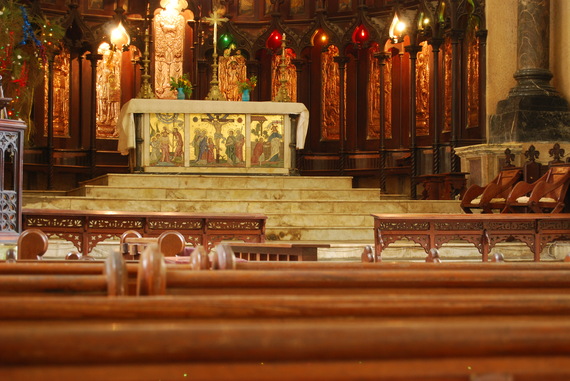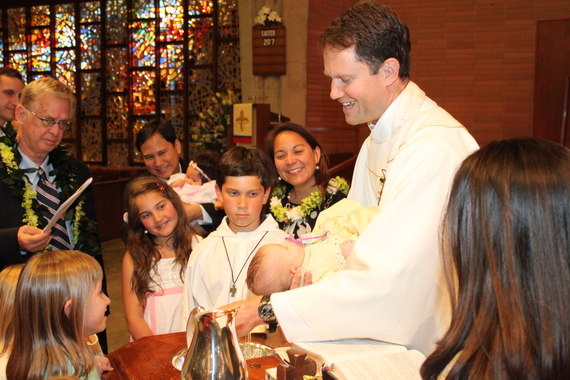On Sunday the wildly popular new pope Francis celebrated the canonization of two of the most controversial twentieth century religious leaders. In his sermon Francis described Pope John XXIII, the convener of the Second Vatican Council (in 1965), as the pope "of exquisite openness." John Paul II, the Polish anti-Communist pope was described in the homily as, "the pope of the family." To honor these icons of liberal and conservative Catholicism on the same day signals a new focus in the Roman Catholic Church.
Experts in the Catholicism point out that after years of divisiveness over issues such as abortion and birth control, and in the wake of the clergy sexual abuse scandal, the current pope is trying to bring the people of his church together. They point out that Francis is trying to build connections to the world in "a Church suffering from self-absorption." He calls for Roman Catholics to foster "an authentic culture of encounter," to hear as well as instruct the world.
Last weekend leaders of the Jesuit School of Theology and the Dominican School of Philosophy and Theology along with other prominent Roman Catholic thinkers gave papers at the Pacific Coast Theological Society. This group of Roman Catholic and Protestant scholars discussed the role of conscience in Catholic social thought, the difference between von Balthasar and Rahner's vision of time, bishops' statements on birth control, abortion and nuclear proliferation.
There were several times when speakers mentioned "the essential nature of Catholicism," or referred to the unique moral authority of the church's bishops. Participants in the conference applauded Francis' big tent efforts to bring the people of his church together. At the same time perhaps the largest issue the Roman Catholic Church faces has not been resolved. What will be the relation between Catholicism and the modern world?
In the mid-1800's, partly in response to the virulent anti-Catholicism of the French Revolution, the Roman hierarchy warred against modern ideas. The Immaculate Conception (the idea that Jesus' mother Mary was free of original sin) became official church dogma in 1854. In its anti-Modernist statement the Syllabus of Errors (1864) the Roman Catholic Church opposed modern philosophy, the separation of church and state along with claims that Protestantism is another form of true Christian religion. The church went further and defined the dogma of Papal Infallibility in 1869-1870.
Today, for people outside the Roman Catholic Church and probably many inside it, the claim that bishops have special authority is hard to understand. The office of the pope seems like the only modern remnant of a medieval doctrine -- the divine right of kings. It does not intuitively make sense to us any more.
We are accustomed to regarding truth as the outcome of open debate and fair process. We instinctively believe in democratic methods for arriving at the truth. We anticipate that a group restricted in membership will make worse decisions than one that is more inclusive. For this reason, to many people councils of celibate male bishops have less moral authority than a more representative group would have.
I am glad that people are proud to be Roman Catholics again and for signs of a new "exquisite openness." I want to be part of this new culture of encounter. At the same time, the proclamations of that church will have more authority for me when the process of governing it becomes more democratic and particularly when it includes women and lay people as participants.

